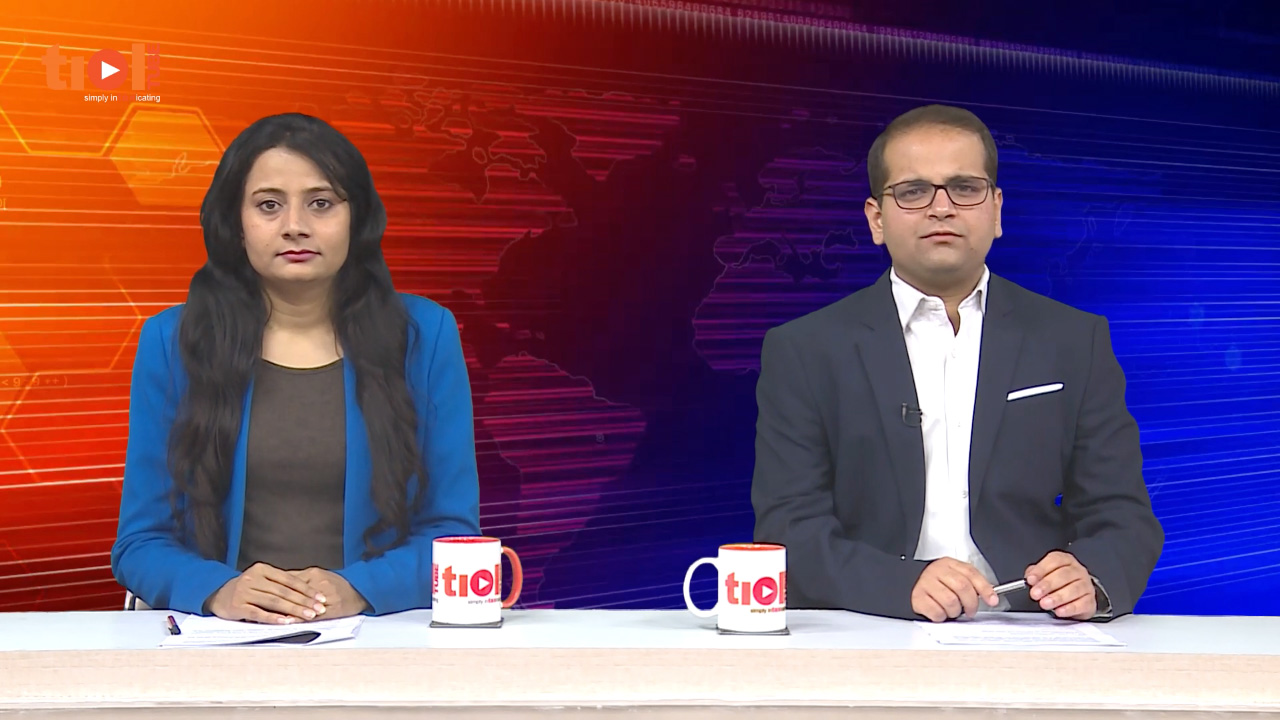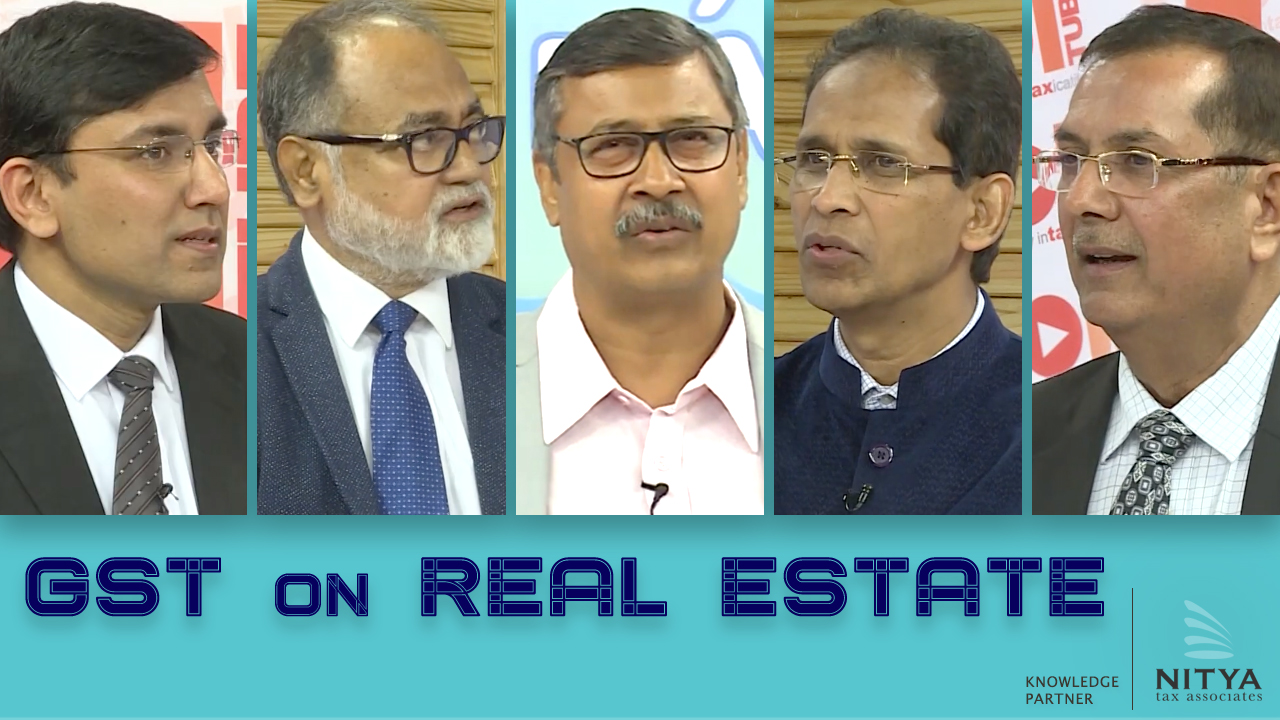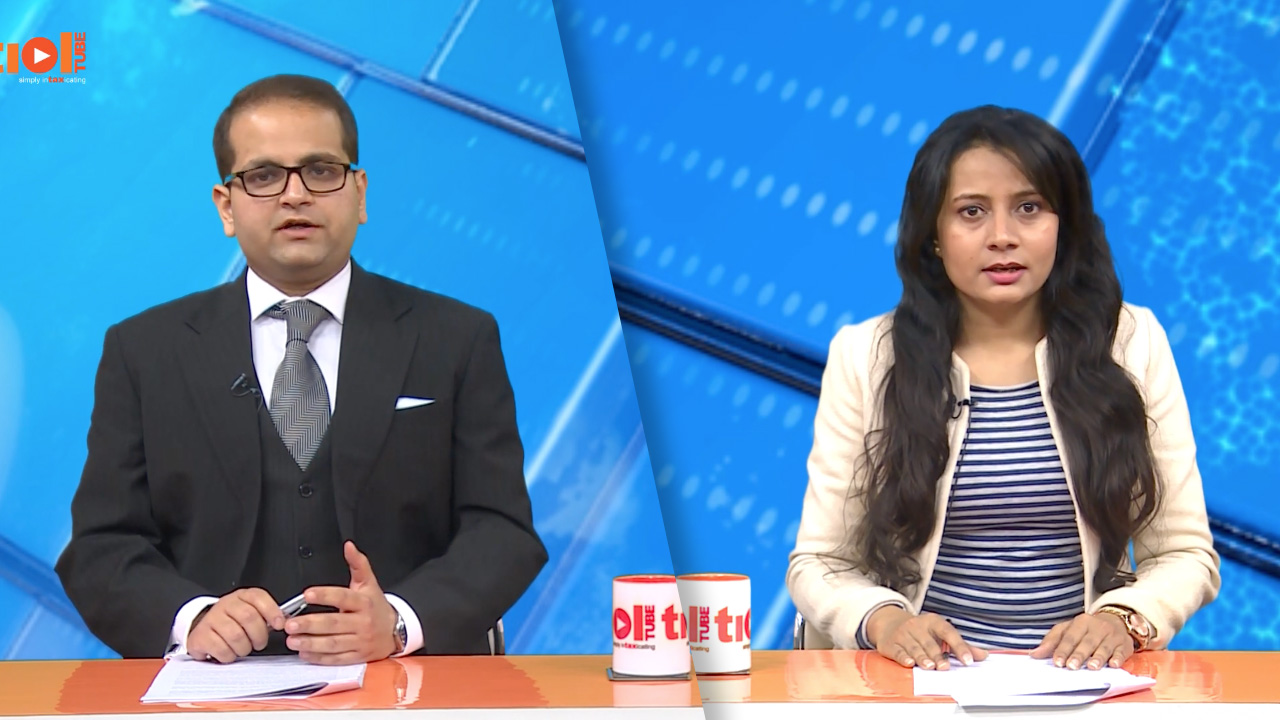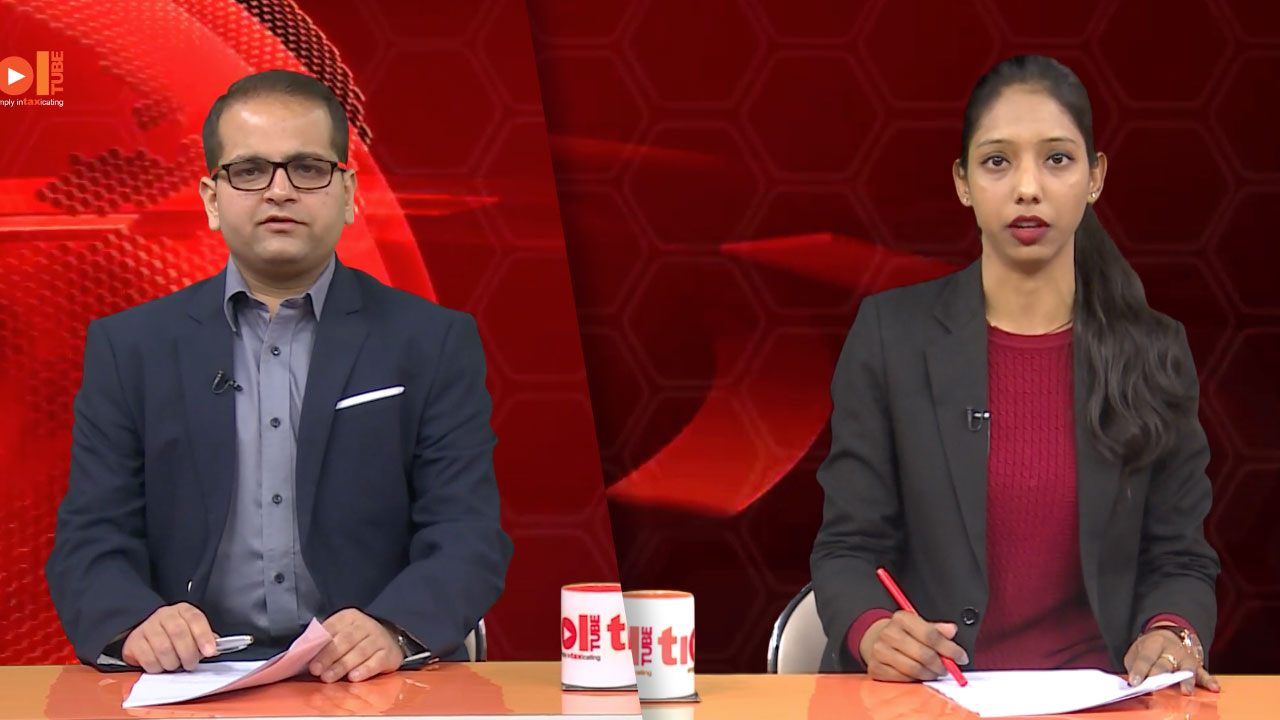|
SERVICE TAX 2019-TIOL-938-CESTAT-HYD Tata Projects Ltd Vs CST
ST - Assessee was engaged in providing services and obtained Service Tax Registration under "Works Contract Services" - As per the works contract composition scheme, the service provider is required to pay a tax of 4% on the gross amount charged for works contract - The department seeks to include the value of goods supplied either under a different contract or as a separate part of the same contract in the value of taxable services on which service tax on works contract service is to be charged - On an identical issue in respect of same assessee, after examining the amendment to works contract (composition scheme for payment of Service Tax) Rules, 2007 vide notfn 23/2009-ST, and the explanation of amendment by CBEC vide D.O.F. No. 334/13/2009-TRU , assessee is not liable to include the value of goods as the contracts were signed/payments were made prior to 07.07.2009 - No reason found to deviate from earlier decision - This covers 13 of 14 projects in respect of which the demand was raised - In respect of the 14th project namely project with respect to SALSETTE Borivli BMC, which was entered post 07.07.2009, it is found from Sl.No. 10 in Annexure-I to the SCN the differential tax payable, according to the SCN, is negative - Therefore, no service tax is payable - The demands as confirmed by impugned order are set aside - Consequently, the interest and penalties associated with the demands are also set aside: CESTAT
- Appeal allowed: HYDERABAD CESTAT
2019-TIOL-937-CESTAT-MAD
United India Insurance Company Ltd Vs Commissioner of GST & CE
ST - The assessee was called upon by Revenue to satisfy as to the payment of tax on the amounts received as advance/deposits for services to be provided which according to it, formed part of the gross amount charged - The assessee has pleaded before adjudicating authority that there was excess credit or excess remittances or unutilized input Credit; the same has nowhere been disputed by the Revenue - The scope of provisional assessment and the tax paid in terms of the same is always taken note while passing the final assessment Order - If the duty paid as per provisional assessment is less than the duty payable after final assessment, then the assessee is liable to make good the balance along with interest on the shortfall - The reasoning given by Karnataka High Court in case of M/s. Toyota Kirloskar Auto Parts Pvt. Ltd. - 2012-TIOL-10-HC-KAR-CX is required to be applied even in this case and accordingly, this takes care of the liability for the period 2005-06 - From one of the replies of assessee dated 07.09.2009, wherein the assessee itself has admitted the delay in tax remittance and consequently arrived at the interest of Rs. 9,63,020/- for the period 2006-07 against the working of the delay and the calculation of interest of Rs. 19,53,680/- (for both periods) by the Revenue - This working is after admission by assessee of the shortfall of Rs. 47,44,656/- for March, 2007 - Assessee is correct in its assertion that there was no shortfall and no interest liability since the shortfall of Rs. 47,44,656/- was for 2006-07 - Hence, service tax paid subsequently/belatedly attracts interest, which is for the year 2006-07 alone - Therefore, there was no interest liability for March, 2006 i.e., for 2005-06: CESTAT
- Appeal partly allowed: CHENNAI CESTAT
CENTRAL EXCISE
2019-TIOL-736-HC-MUM-CX
CCE Vs Maharashtra Steel Rollings Mills Ltd
CX - Before the Court, at the time of admission, the questions as proposed by Revenue did not raise any issue with regard to demand being barred by limitation - Thus, that issue stands concluded in favour of the respondent even as per the Revenue - So far as other questions which are now being raised are the same which were subject of consideration by the coordinate Bench of this Court at the time of admission - At that time, the appeals were admitted only on one issue by reframing the question of law - Thus, entertaining/examining the question for consideration would amount to review of the order dated 18th September 2009 admitting the appeals - This, without any reasons being even suggested by Revenue, which would warrant the questions being reurged at the time of final hearing of these appeals - Therefore, there is no reason to exercise the power under proviso to section 35G (4) of the said Act in the present facts - Therefore, the other issues on which the Tribunal has decided the appeals in favour of the respondents would remain untouched even if the admitted substantial question of law answered in favour of the Revenue - Thus, the substantial question of law as framed in these appeals is academic - It would be open to the Court to consider the substantial question of law in an appropriate case: HC
- Appeals dismissed : BOMBAY HIGH COURT
CX - Assessee is manufacturer of mobile handsets and similar phones - They imported batteries to be used for manufacture of mobile handsets and similar phones for availing concessional rate of duty under Notfn 21/2005 superseded by Notfn 23/2010 - While filing the Bill of Entry, assessee have shown the address of premises which was not the same as the premises in respect of which the Bond was executed - However, the goods cleared were received in premises in respect of which Bond was executed - A SCN was issued to assessee alleging that the said batteries are not parts / accessories of the mobile handsets or other phone manufactured and cleared by them in terms of the said Notification and hence, the benefit of Notification was not available to them - The Tribunal has consistently held in its decisions in Vuppalamrita Magnetic Components Ltd. 2016-TIOL-2381-CESTAT-MAD, United Telecom Ltd. 2009-TIOL-933-CESTAT-BANG and NI Micro Technologies Pvt. LTd. 2012-TIOL-1035-CESTAT-BANG that when mobile/other phones cannot work without batteries, they are to be considered as parts of the mobile phones - Following the ratio of said decisions, the imported batteries are essentially parts and accessories of the mobile phones and the benefit of exemption under Notfn 21/2005 is admissible to them - It is also observed that benefit of exemption has been allowed by assessing officer on the basis of certificate given in Annexure –III certifying that the said batteries were part, component of mobile phones - Once having held that these batteries were part, component of mobile phones and used in manufacture of said mobile phones, Revenue could not change its stand without any justifiable reason in subsequent proceedings - It is not the case of Department that the goods were not received in premises where they were meant for - It is also not the case that goods have not been duly accounted for - In his order the Asst. Commissioner has only stated that records for accountal and assessments were not produced before him. If such records were required, Asst. Commissioner could have called for a report on verification of receipt and usage of the said goods and thereafter, adjudicated the matter - Having not done so, the order of the Asst. Commissioner holding against assessee cannot be sustained - Accordingly, matter for this limited purpose needs to be sent back to him for consideration: CESTAT
- Appeal disposed of : BANGALORE CESTAT
2019-TIOL-936-CESTAT-MAD
Hwaseung Materials India Pvt Ltd Vs Commissioner of GST & CE
CX - The appellant company manufactures Rubber compound falling under CETH 40051000 and 40169990 of CETA 1985 - During the relevant period, the appellant's premises were visited by the Revenue officials - It was then observed that the appellant removed their rubber compound to one M/s HSI which held 100% shares in the appellant company - Hence it was inferred that the two companies were related entities - It was also noted that such material was being used for manufacturing automobile components & that the value adopted for payment of duty by the appellant was below 110% of the cost of production - Hence the Department opined that the appellant had not followed the valuation of such clearances as per CAS-4, which led to short-payment of duty - The appellant self-determined the differential duty amount and paid the same - SCN was issued, proposing duty demand with interest & penalty u/s 11AC - The same were confirmed upon adjudication - Hence the present appeals.
Held: The present case involves a revenue neutral situation, as the goods manufactured by the appellant were removed only to their holding company - While it is true that the appellant calculated the assessable value only at 103% of the cost of production instead of 110% as per CAS-4, even if the duty liability was 110%, the Department would have been able to avail the same - Besides, the appellant paid the entire duty liability before issuance of the SCN - The remaining duty demanded was paid up proximate to issue of Statements of Demand - Moreover, the short-payment of duty was not with any intent to evade payment of duty - Also considering the aspect of revenue-neutrality, the duty demand merit being quashed: CESTAT (Para 2.1,2.2,2.3,6,8)
- Assessee's appeals allowed: CHENNAI CESTAT
2019-TIOL-935-CESTAT-MAD
Hyundai Motor India Ltd Vs Commissioner of GST & CE
CX - The appellant manufactures cars - Upon audit, it was noted that the appellant availed Cenvat credit on certain inputs such as angles, channels and other items used for support of capital goods - The Department opined that credit was not available on such items - On adjudication, duty demands were raised with interest & equivalent penalty u/r 15 of CCR 2004 r/w Section 11AC of CEA 1944 - Hence the present appeals.
Held: It is seen that the issue at hand stands settled in various precedent judgments - Though the adjudicating authority relied upon a Larger Bench decision of the Tribunal in Vandana Global Ltd., the same was set aside by the High Court in the same case - Following such findings, the O-i-O warrants being quashed: CESTAT (Para 1,6)
- Assessee's appeal allowed: CHENNAI CESTAT
2019-TIOL-934-CESTAT-BANG
Toyota Kirloskar Motors Pvt Ltd Vs CCT
CX - The appellant company is a leading manufacturer of multi-utility vehicles, passenger cars and parts thereof - It availed Cenvat credit on input goods, services & capital goods used in manufacture of final products - During the relevant period, the Revenue noted that the appellant had utilized credit on outdoor catering service and that during this very period, Cenvat credit could not have been availed on outdoor catering service - Hence SCN was issued proposing duty demand to recover such credit, along with interest & imposition of penalty - Such duty was paid by the appellant and the same was appropriated upon adjudication - The penalty was also set aside - Later, the Commr.(A) sustained such findings - Hence the present appeal.
Held: The issue at hand stands settled by the Larger Bench of the Tribunal in M/s. Wipro Ltd. vs. CCE - In this case, it was held that a service should first be covered under the definition of 'input service' and once the service is not covered due to exclusion clause irrespective of the fact whether the cost of service has been taken as expenditure in the books of accounts does not render the services as admissible for Cenvat credit - The Larger Bench therein also noted that the food was meant for the personal consumption of employees - Thus it was observed that once such service is excluded, it is immaterial as to who between the employer or employee bears the cost partially or fully - Therefore, the Larger Bench found that the Outdoor Catering Service was ineligible for cenvat credit post 01.04.2011 - Following such findings, the O-i-A in the present case is sustained: CESTAT (Para 2,6)
- Assessee's appeal dismissed: BANGALORE CESTAT
CUSTOMS
2019-TIOL-732-HC-MAD-CUS
Agro 1 Stop Vs CC
Cus - The petitioners sought a Mandamus for release of consignments and a further direction to the respondents to issue a 'Detention Certificate' for waiver of Demurrage and Container Detention Charges in terms of Regulation 6(1)(l) of Handling of Cargo in Customs Areas Regulations, 2009 - The identical issue has been considered in case of M/s.Royal Impex 2019-TIOL-596-HC-MAD-CUS - The said order is applicable to the present case on all fours - The petitioners will remit the entire duty component of consignments imported by them in cases where such duty is leviable along with a bank guarantee for the 10% of invoice value - In cases where the duty impact is neutral, the petitioners shall furnish a bank guarantee for the 10% of the invoice value - Upon satisfaction of aforesaid conditions, the consignments shall be released forthwith - The authorities are at liberty to initiate proceedings in respect of transactions in question and if done, petitioners shall appear, be heard and file their submissions pursuant to which orders shall be passed by authorities in accordance with law - The petitioners have also prayed for waiver of demurrage charges incurred in respect of detained consignments - In the light of Rule 6(l) of Handling of Cargo in Customs Areas Regulations, 2009, which provides that Customs Cargo Provider shall not, subject to any other law for the time being in force, charge any rent or demurrage on the goods seized or detained or confiscated by the Superintendent of Customs or Appraiser or Inspector of Customs or Preventive officer or examining officer, as the case may be, there shall be a waiver of demurrage charges: HC
- Writ Petition disposed of: MADRAS HIGH COURT
2019-TIOL-730-HC-RAJ-CUS
Shree Krishna Paper Mills and Industries Ltd Vs CC
Cus - The writ petition has been filed challenging the order passed by Tribunal wherein it is held that order earlier passed by it suffered from mistake apparent on the face of the record so as to justify invocation of its power under Section 129B of Customs Act, 1962 so as to rectify such mistake - The Tribunal has given detailed and weighty reasons to support its view that the order earlier passed by it suffered from mistake apparent on the face of the record - Two facts-that the Commissioner of Customs (Preventive), Jodhpur after detailed discussion on the issue recorded finding that he had requisite jurisdiction to issue SCN and that order of Commissioner along with SCN was subjected to challenge before this Court, which had upheld the same, were not brought to its notice - The Tribunal therefore held that these were material facts which were required to be brought to its notice at the time of hearing of the appeals and without bringing these facts to its notice, attempt was made to persuade the Tribunal to remand the matter to the Adjudicating Authority as in some cases, matters were remanded in view of the judgment of Delhi High Court in Mangali Impex Ltd. - 2016-TIOL-877-HC-DEL-CUS - The Tribunal therefore held that consent was given by department against the record which necessitated recall of the final order for rehearing of the appeals on merits - No good reason found to interfere with impugned order, as in any case the appeals are to be reheard now on merits - It would be still open to petitioner to canvass before the Tribunal as to how this matter is covered by the judgment of Delhi High Court in Mangali Impex Ltd. and therefore was required to be remanded back to the Adjudicating Authority: HC
- Writ petition dismissed: RAJASTHAN HIGH COURT 2019-TIOL-933-CESTAT-DEL
CC Vs Sel Manufacturing Company Ltd
Cus - The assessee-company was being investigated by the DRI during the relevant period, whereupon the assessee deposited some amount of duty during the investigation period - Such amount was partly deposited in cash and the rest through surrendering the DEPB/Excise rebate claim - An SCN was issued by the DRI, proposing to appropriate the amount deposited against the duty demand proposed to be raised - On adjudication, the demand was confirmed with interest & equivalent penalty along with personal penalty upon the director of the assessee-company - As the amount deposited during investigation far exceeded the duty finally confirmed, the assessee claimed refund of the balance amount - The same was sanctioned by the jurisdictional Asst. Commr. after adjusting interest & penalty - Thus the Asst. Commr. appropriated all the liabilities arising out of the O-i-O - However, it was mentioned by the Asst. Commr. that the main duty amount can be adjusted from the DEPB/Rebate - Such order was accepted by the Revenue - Thus the assessee filed a second refund claim, which was rejected on grounds that the provisions of the Act did not provide for such refund in cash - Later, the Commr.(A) allowed the assessee's appeal - Hence the Revenue's appeal.
Held: The amount surrendered by the assessee through DEPB/Rebate claim has been considered to be an amount deposited during investigation - The Commr.(A) correctly held that refund claim cannot be denied merely on the ground that there is no provision under law - Once it is accepted that the benefits surrendered by the respondents are in the nature of amount deposited during investigations, then the refund of the excess amount has to be refunded - Hence the present appeals lack merit: CESTAT (Para 2-8,19,20)
- Revenue's appeal dismissed: DELHI CESTAT |









